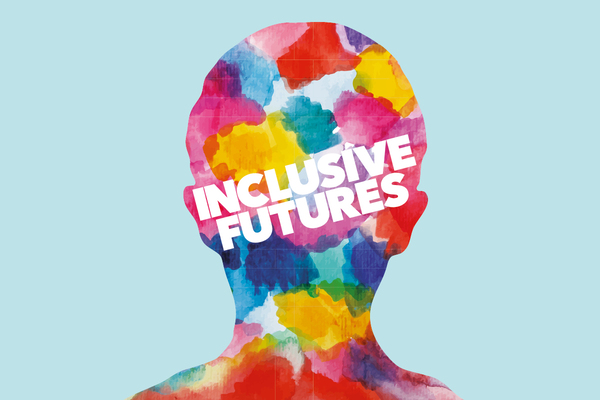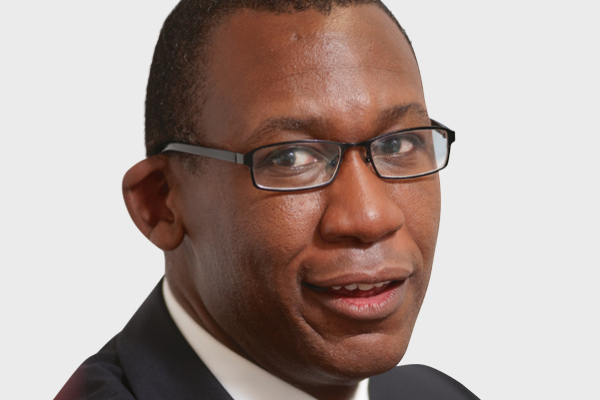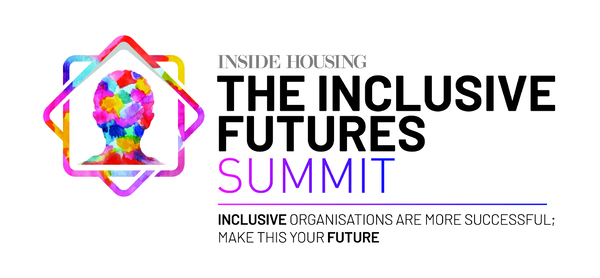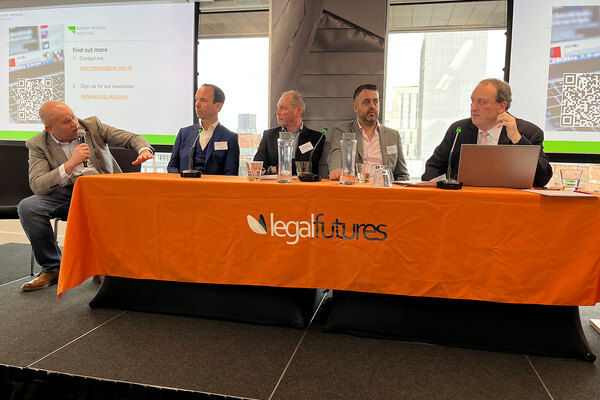You are viewing 1 of your 1 free articles
How to implement the Rooney Rule without falling foul of discrimination laws
A number of housing associations are committing to include female and BME candidates on all shortlists for senior roles, but how do they do this legally? Nicola Ihnatowicz explains
Inside Housing’s Inclusive Futures campaign aims to promote diversity and inclusion among housing’s leadership teams
Inside Housing recently reported that Peabody had agreed to adopt the Rooney Rule when recruiting senior staff, committing to include female and non-white candidates on shortlists for senior roles.
This followed the same news from fellow G15 employer, L&Q, as well as Leadership 2025’s promotion of the Rooney Rule and other employers outside the sector adopting the same practice, notable The Football Association.
So what is the Rooney Rule? The Rooney Rule was first taken up by the NFL in the United States, after a diversity initiative led by Dan Rooney, former chair of the Pittsburgh Steelers, in 2003.
It is very simple: when recruiting for senior coaching positions, the NFL agreed that it must interview a BME applicant every time.
The rule has been adopted in a slightly wider context by Peabody and L&Q, in that it applies to women as well.
Is it legal?
So how can it be legal to insist on a BME or a female applicant being interviewed for a position? Isn’t this discrimination in favour of BME or female candidates?
There is a difference between positive action and positive discrimination.
Positive discrimination, where one person is treated more favourably than another because they have a protected characteristic, is generally prohibited under the Equality Act 2010, unless an occupational requirement applies. However, positive action is different.
“There is a difference between positive action and positive discrimination.”
The law contains provisions concerning lawful positive action. These are designed to apply where people who share a protected characteristic suffer a disadvantage, have particular needs or are disproportionately under-represented.
In these circumstances, an employer can, if it wishes, take any action which is a proportionate means of achieving a ‘legitimate aim’.
The aim must be to enable or encourage people who share the protected characteristic to overcome or minimise the disadvantage identified, to meet the needs identified or to participate in the activity in which they are under-represented.
So what is proportionate and legitimate?
Housing providers don’t need to be told of the benefits of having a diverse workforce and often incorporate that vision in their strategy.
It is likely that wanting a more diverse senior workforce will be a legitimate aim, although this hasn’t been tested in the courts.
In addition, generally speaking, where senior employees are predominantly of one race or sex, it is clear that a housing provider can show that others are under-represented at those levels in an organisation.
“It is likely that wanting a more diverse senior workforce will be a legitimate aim, although this hasn’t been tested in the courts.”
We also have the useful data now published by the introduction of the (Gender Pay Gap Information) Regulations 2017. While housing providers do not have massive disparities in pay, the data does show that there are fewer women than men at a senior level.
If a housing provider can identify that through its own data and states that it wants to close that gap, then it is likely to be a legitimate aim.
Shortlisting applicants during recruitment who are BME or female is a way of achieving the aim of having a more diverse and balanced workforce. It is likely to be a proportionate means of achieving the legitimate aim.
There is an area of risk which is that such action is only allowed if individuals are as qualified for a position as each other.
Blind recruitment practices are useful in identifying that all those shortlisted are as qualified as each other.
Why is this happening now?
Many housing providers are now re-focusing on addressing diversity, possibly as a result of the profile raising done by the press and Leadership 2025, which has a growing number of organisations pledging to take action to address diversity.
“Such action is only allowed if individuals are as qualified for a position as each other.”
The publication of gender pay data also does concentrate the mind, and we anticipate that the annual data will be scrutinised closely in years to come to see how trends evolve.
Looking just at sex discrimination, there has been a large increase of equal pay claims brought in the employment tribunal in the last year, which is thought to have been fuelled partly by the increase in profile of equal pay issues raised by BBC journalists since publication of their salaries, and partly because of the publication of gender pay data.
As the Rooney Rule is adopted by more and more organisations, the evidence of its working to achieve better diversity will build, and positive action in the sector will become more accepted.
Perhaps the more interesting question is how the sector would be held to account for any lack of change.
Nicola Ihnatowicz, employment partner, Trowers & Hamlins
The Inclusive Futures Summit
Inside Housing is launching the Inclusive Futures Summit
Our high-level summit will bring together respected people leaders and exemplars from the across sector and wider business to debate, discuss and learn how to embed diversity and inclusion in your organisations and harness the myriad benefits that this creates and to ensure that your workplace is reflective of the diverse communities you serve.
Themes being discussed include why being an inclusive organisation can help you be more successful, how to make inclusion visible in your organisation and the best approaches to encourage diversity at board level.
Discussions will also focus on how to future-proof your recruitment processes, promote inclusion through talent management, build working environments safe from prejudice and tackle unconscious bias.
The summit will take place on October 11 at the Emirates Old Trafford, Manchester.
What is the Rooney Rule?
The Rooney Rule originated in American football.
In 2003 the National Football League introduced a requirement that American football clubs must interview at least one BME candidate for vacant head coaching and other senior roles.
The concept is named after the late Dan Rooney, former chairman of the Pittsburgh Steelers, who spearheaded the rule’s introduction following concern about the lack of black coaches in the sport.
The England and Wales Cricket Board announced in May that is introducing the rule for all coaching positions.
L&Q announced on 22 May that it too was adopting the rule when recruiting for senior roles.
Inclusive Futures
Inside Housing’s Inclusive Futures campaign aims to promote and celebrate diversity and inclusion.
We are pledging to publish diversity audits of our own coverage.
We are also committed to proactively promoting positive role models.
We will do this through the pages of Inside Housing. But we will also seek to support other publications and events organisations to be more inclusive.
Our Inclusive Futures Bureau will provide a database of speakers and commentators from all backgrounds, for use by all media organisations.
We are also challenging readers to take five clear steps to promote diversity, informed by the Chartered Institute of Housing’s diversity commission and the Leadership 2025 project.
THE INCLUSIVE FUTURES CHALLENGE
Inside Housing calls on organisations to sign up to an inclusive future by taking five steps:
Prioritise diversity and inclusion at the top: commitment and persistence from chief executives, directors and chairs in setting goals and monitoring progress.
Collect data on the diversity of your board, leadership and total workforce and publish annually with your annual report. Consider gender, ethnicity, disability, sexuality, age, and representation of tenants on the board.
Set aspirational targets for recruitment to the executive team, board and committees from under-represented groups.
Challenge recruiting staff and agencies to ensure that all shortlists include candidates from under-represented groups.
Make diversity and inclusion a core theme in your talent management strategy to ensure you support people from under-represented groups to progress their careers.
INSIDE HOUSING’S PLEDGES
We will take proactive steps to promote positive role models from under-represented groups and provide information to support change.
We pledge to:
Publish diversity audits: We will audit the diversity of the commentators we feature. We will formalise this process and publish the results for future audits twice a year.
Promote role models: We will work to highlight leading lights from specific under-represented groups, starting in early 2018 with our new BME Leaders List.
Launch Inclusive Futures Bureau: We will work with the sector to compile a database of speakers, commentators and experts from under-represented groups. The bureau will be available to events organisers, media outlets and publications to support them to better represent the talent in the sector.
Take forward the Women in Housing Awards: Inside Housing has taken on these successful awards and will work to grow and develop them.
Convene Inclusive Futures Summit: Our new high-level event will support organisations to develop and implement strategies to become more diverse and inclusive.














